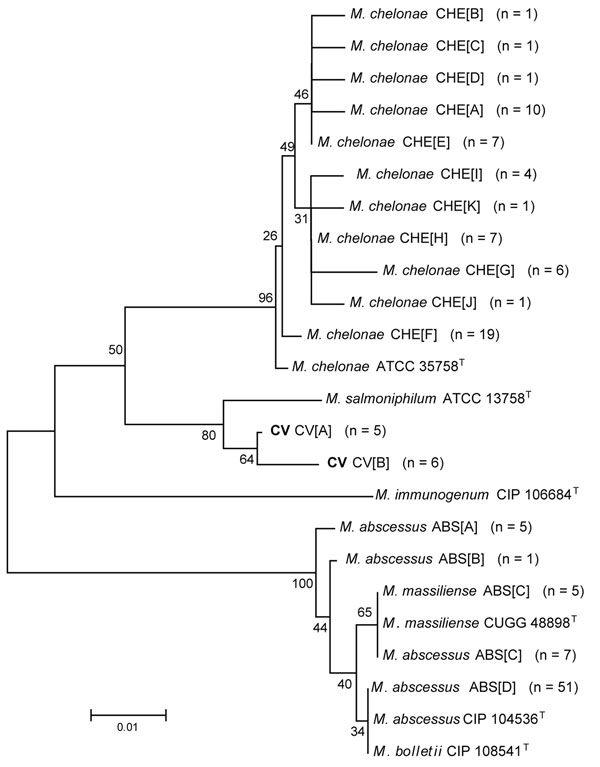Volume 17, Number 9—September 2011
CME ACTIVITY - Research
Mycobacterium chelonae-abscessus Complex Associated with Sinopulmonary Disease, Northeastern USA
Figure 2

Figure 2. Neighbor-joining tree of 233 bp of unique internal transcribed spacer region sequences of 138 clinical isolates and reference strains of the Mycobacterium chelonae-abscessus complex. Branch support is recorded at nodes as a percentage of 1,000 bootstrap iterations. Clinical isolates are labeled by the identification, followed by the sequevar group and the number of isolates. Scale bar indicates nucleotide substitutions per site. ATCC, American Type Culture Collection; CV, M. chelonae variant; CIP, Collection of Institute Pasteur; CCUG, Culture Collection, University of Göteborg, Sweden.
1These authors contributed equally to this article.
Page created: September 06, 2011
Page updated: September 06, 2011
Page reviewed: September 06, 2011
The conclusions, findings, and opinions expressed by authors contributing to this journal do not necessarily reflect the official position of the U.S. Department of Health and Human Services, the Public Health Service, the Centers for Disease Control and Prevention, or the authors' affiliated institutions. Use of trade names is for identification only and does not imply endorsement by any of the groups named above.